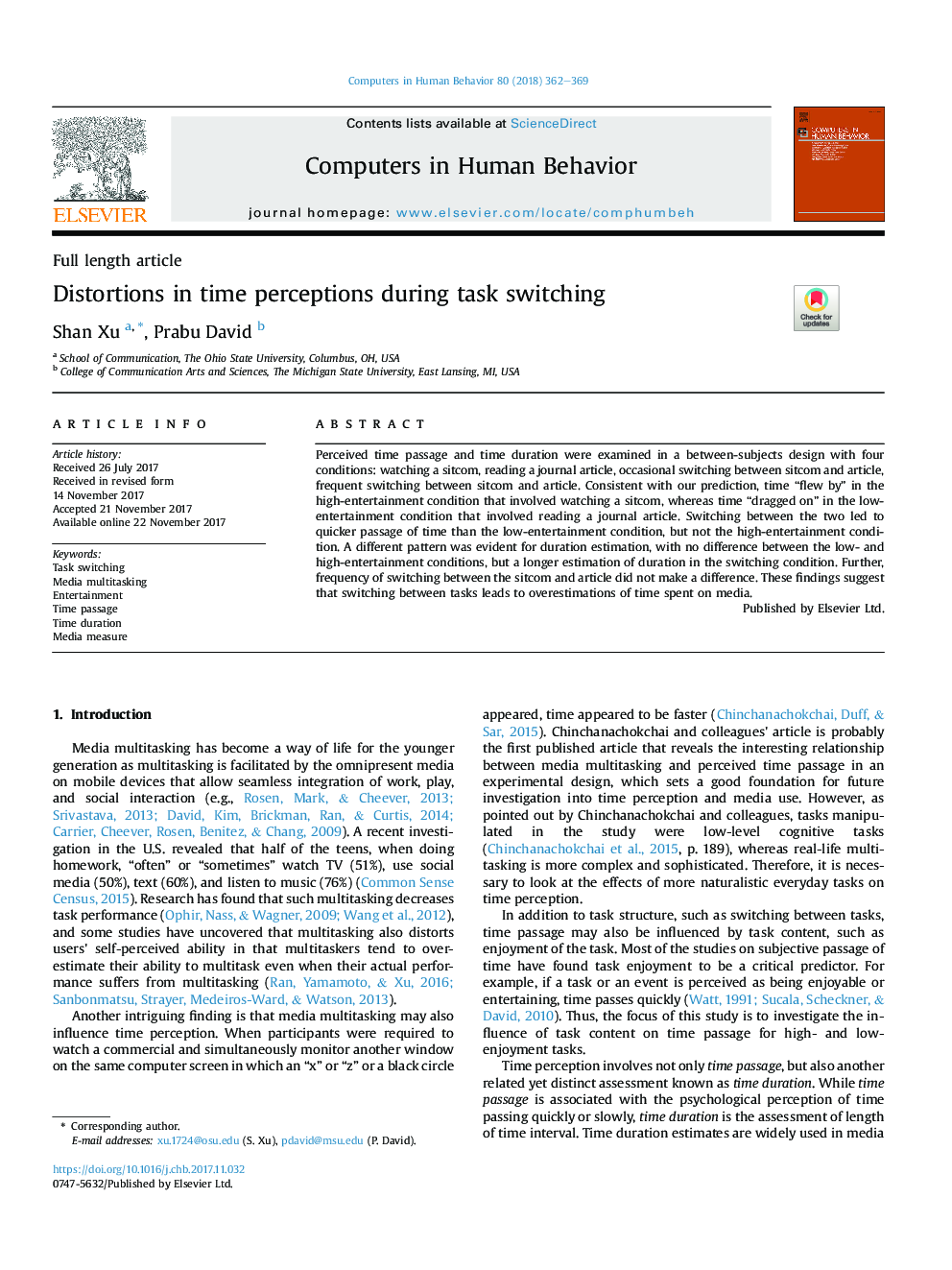| Article ID | Journal | Published Year | Pages | File Type |
|---|---|---|---|---|
| 6836281 | Computers in Human Behavior | 2018 | 8 Pages |
Abstract
Perceived time passage and time duration were examined in a between-subjects design with four conditions: watching a sitcom, reading a journal article, occasional switching between sitcom and article, frequent switching between sitcom and article. Consistent with our prediction, time “flew by” in the high-entertainment condition that involved watching a sitcom, whereas time “dragged on” in the low-entertainment condition that involved reading a journal article. Switching between the two led to quicker passage of time than the low-entertainment condition, but not the high-entertainment condition. A different pattern was evident for duration estimation, with no difference between the low- and high-entertainment conditions, but a longer estimation of duration in the switching condition. Further, frequency of switching between the sitcom and article did not make a difference. These findings suggest that switching between tasks leads to overestimations of time spent on media.
Related Topics
Physical Sciences and Engineering
Computer Science
Computer Science Applications
Authors
Shan Xu, Prabu David,
